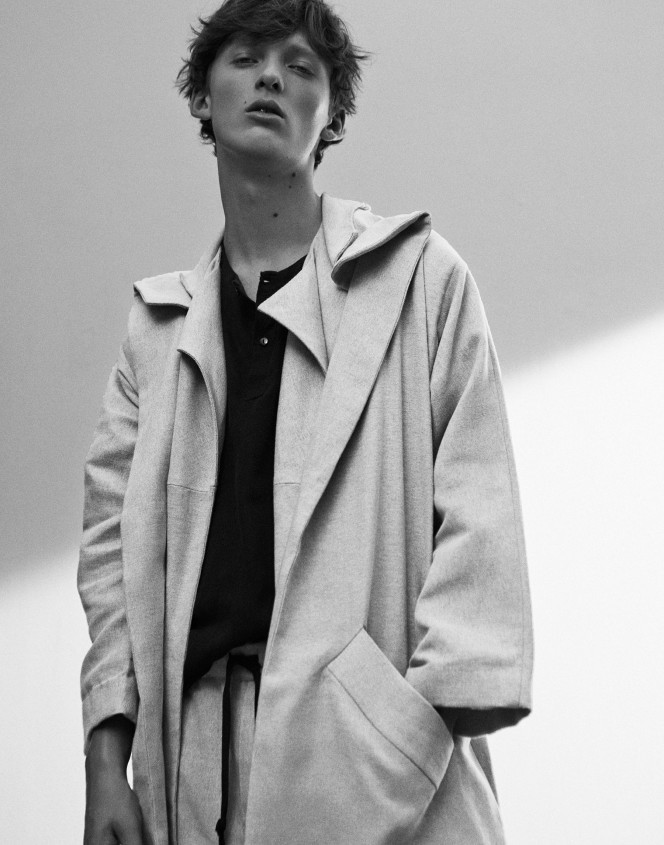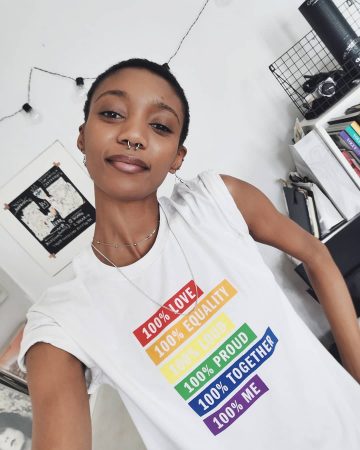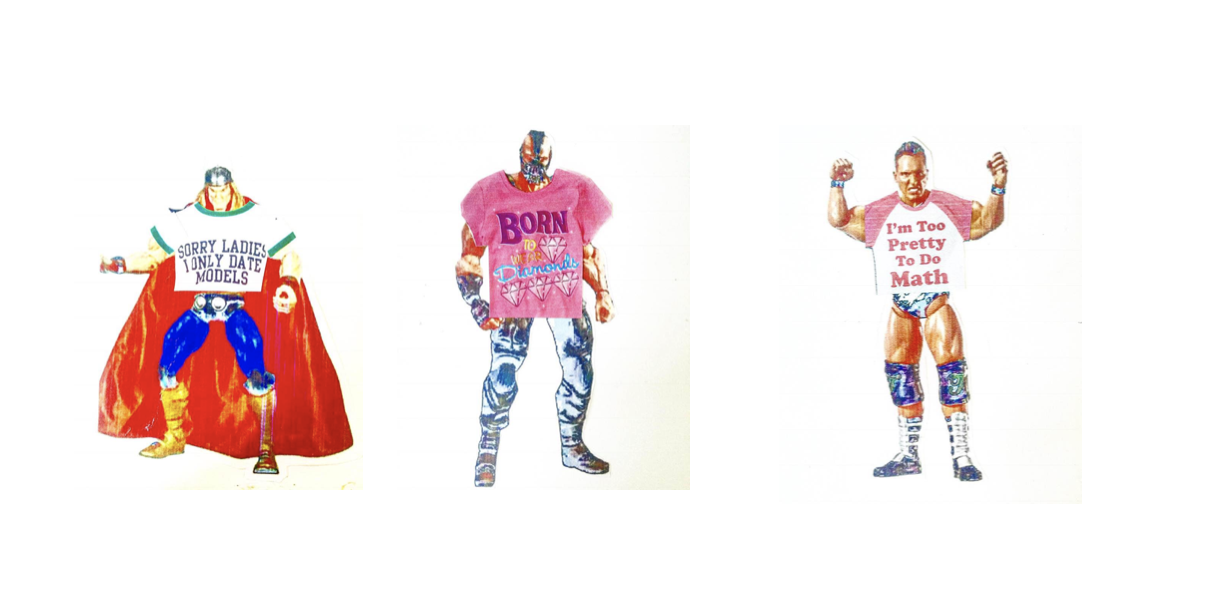#M1 talks to / interviews
QUEER ON THE RUNWAY | Hannah & George
Since its inception, the fashion industry and the LGBTQ community have had an intimate and inextricable relationship with one another. The creative output of designers, makeup artist, hair stylists and the like have often been the product of LGBTQ people, influencing the dominant culture through the runways and glossy mags.
This chic playground operates as a safe-space for those casted out of society for disrupting social norms and societal expectations of what it means to be male, female, or simply human. It is through the aspirational realm of fashion that these outcasts become the new guard, starting poignant conversations.
Seems a bit heavy for dresses and pretty buttons, doesn’t it?
Not really.
Whether it’s the subversion of gender as women began wearing trousers in the 1920’s or the celebration of the LGBTQ community on Burberry’s A/W ’18 runway, the clothes we wear note the changing of times and can serve as a silent protest as we aim for the future.
As the LBGTQ community continues to gain acceptance within the mainstream with the expansion of gay rights around the world and the ascent of openly gay figures in pop culture, nothing appears to be better than being out and proud in 2018. But is this the reality?
In honour of Pride Month, Models1 asked two of our young models George Kirkup-Delph and Hannah Shakespeare about their experiences as members of the LGBTQ community in fashion and their outlook on the industry as it pertains to gay issues and visibility.

M1: We’ve seen society progress in so many positive ways for the LGBT community around the world, so much so that there are those who say being gay is no longer a big deal. Do you think we’ve truly normalised and accepted the community or is there more work left to do?
GKD: I think it’s misguided to assume that being part of the LGBT community means you’ve had an easy ride in life. For example, those within the community are more likely to be homeless and suffer with mental health issues, which is a big indication that we don’t live in a world that is truly accepting of the community.
I have a younger sister who is at secondary school at the moment. Much like when I was there, the word ‘gay’ is constantly thrown around the playground and the classrooms. It is used as an insult and always seems to be loaded with negative connotations which demonstrates that society hasn’t accepted or indeed normalised the LGBT community.
Why is the use of this word in such contexts not treated with the same gravitas as sexist or racial slurs, both by students and teachers alike? Educating people that they need to take responsibility for the words they choose to use and the consequences they can cause is the answer. As with anything, we need to begin education with the younger generation. One step might be to have equal representation within children’s television, media and curriculum at schools.
HS: Being anything other than heterosexual still isn’t truly accepted right now. We’ve continued along the path made by so many before us and we have made progress. However, we’re still being heckled on the underground, attacked on the street and refused service and other things. We have further to go.
M1: Recognising and becoming comfortable with your sexuality is an experience that many can relate to – could you tell us anything about your journey?
GKD: My best friend from the age of 11 actually came out when he was 13, I still admire his bravery in doing so. Although I then had people coming up to me at school questioning why I was friends with him and if i was worried that he would try and hit on me.
Having seen how much he struggled with bullying I was scared to then come out myself and ended up questioning my sexuality a lot. I was in denial for a good five years from realising that I wasn’t completely ‘straight’ to coming out as gay. Even in my adult years when I was working in the fashion industry, people would say homophobic things about other people to me, not realising they were preaching to the queer.
The fact that this was happening in London, which is considered something of a bubble in it’s diversity and acceptance, and furthermore in the fashion industry which is synonymous with gay culture, made me think “if i can’t be who I truly am in this environment, where the hell can I?”
I eventually came out to my friends and family at the ripe age of 20, after many failed attempts at forming coital relations with girls and slightly more successful attempts with guys. I was so nervous, but I was met with complete acceptance, and in most cases, a complete lack of surprise. It made me feel silly for psyching myself up so much. I feel blessed to have been received in open arms, but am well aware of the struggles friends and acquaintances have had in coming out, being abandoned by there families or advised to step back into the closet. It’s these stories that make it so difficult to be gay, although they might not directly affect you, you become well aware that there are a lot of people in the word that don’t agree with your lifestyle.
HS: When I was younger, I remember wondering a lot about about gender identity & sexuality (not knowing thats what it was). I remember never really having crushes on people like so many would in school; I’d ended up saying “no one really” when asked by my friends because I was truly so confused by how I thought should be versus how I felt. I remember starting to know I was kinda gay.
Meeting new people who made me feel comfortable talking openly about things was when it so easy for me to realise. Just being around people who understand and accept me. Finding out about the huge LGBTQ community. People who had the same questions as me or the answers to them, being comfortable taking pride in who they are and who they want to love really helped and still help with being comfortable with who I am.
M1: Have you ever felt as though you were treated differently than your peers?
GKD: I think to a certain extent, there’s a level of tokenism attached to being gay. Some people assume that just because they have another gay friend, you will automatically be the one to marry them. There have also been people that, once they have found out that I’m gay, have professed that we are now going to be best friends because of it. It becomes more of a defining characteristic than a straight person’s sexual orientation. So, in that way, I would say that there have been times where I’ve felt as though I am treated differently to my peers, but certainly not by everyone and rarely negatively.
M1: Were you ever worried that your sexuality could harm your career or prevent you from gaining certain opportunities?
GKD: Not particularly. People are often surprised when they find out that I’m gay. Perhaps this is because I don’t adhere to the criteria of the ‘gay man’ which has been constructed by the media. Although, I have been apprehensive to tell employers about my sexual orientation in the past because I can never be sure as to what their stance on it is. Part of me feels like I should go around town dressed up as a rainbow, telling everyone about it so that they become desensitised to my gayness, but equally its lack of relevance in the workplace prevails me to not tell people a lot of the time.
HS: Maybe a little, yes. I’d definitely call people out if I knew they didn’t want to work with me just because of my sexuality. Opportunities from people who push me aside because I’m gay (and black) don’t matter to me, I don’t wanna know. Smh and move on.

M1: Hannah, as a gay black woman in fashion, have you ever felt as though you were treated differently than your peers?
HS: I’ve been treated differently in good and bad ways. The most frequent thing that really annoys me is hair & makeup. Hair being the part I’m most weary of every job. Earlier this year a lot of my hair broke off after the fashion season and that shouldn’t be a normal thing for those of us with natural Afro hair. Some bad moments happen and honestly, I either stand my ground or brush it off depending on the situation.
M1: George, You’re currently dating fellow M1 model Sam McSweeney – how did you two meet and what’s it like having your boyfriend within the same industry as you?
GKD: Indeed I am. We actually met on Tinder, but when we first started dating he told everyone that we met at a casting because perhaps meeting in that way didn’t align with his romantic ideals. Most of our friends now know how we did meet, but as far as I’m aware, his parents are still are still under the casting illusion, so I hope they don’t end up reading this. Dating apps get a bad name for being synonymous with casual sex, but I think that seems to be less so the case now, as I am hearing more and more success stories.
As for having a boyfriend who works in the same industry as me, it has its positive and not so positive traits. It’s nice to talk to someone about modelling without them automatically assuming I’m getting paid a phenomenal amount of money every day, although it can prove challenging also.
We went to our first casting together the other day and it went better for one of us than it did the other and the other person didn’t take it so well. Having said that, I think it’s good to have a bit of healthy competition in a relationship.
M1: Any thoughts on the growing inclusion of “gender-less” clothing from brands?
GKD: It’s interesting that you ask that, as gender-less clothing is something that I’m particularly interested in. I recently completed an art project on modern male identity, looking into the effect that children’s toys and fashion could have on sculpting, warping and effecting gender identity. There’s some pretty shocking stuff out there. Girls’ clothes and toys often advocate aesthetics over intelligence, whilst the boys’ products push brains and brawn. I think gender identity and sexuality are intrinsically linked because of this, as it creates a gender conforming attitude towards hobbies, interests and even morals to a certain extent. One of the responses I created – looking specifically at children’s fashion – was a series of collages below in which I placed gender based clothing onto action figures marketed at boys. One of the things I like about art is that you can make a point without having to shove it down someones throat, because the audience then has the ability to analyse it in a very personal way. Although I don’t think the collages are particularly subtle having said that.

Photo: George Kirkup-Delph
M1: Are there any issues within the gay community that you are particularly close to or active in bringing attention to?
GKD: Mental health issues and homelessness are particularly high within the community, this is something that certain celebrities like Miley Cyrus are addressing. If more people like herself used their privilege as a platform to advocate change then I feel like the ball would start moving a lot faster in the right direction. In the age of social media celebrities are having a much more powerful effect on the minds of the younger generation and i think it goes beyond being an opportunity, but more a of a responsibility on their part to make sure their using that power in the right way.
M1: Is there anyone in the industry that you feel does an exceptional job of highlighting LGBTQ people in and outside of the industry, if so, who?
GKD: I don’t think that I’ve come across one person in particular in the industry that I feel has done anything exceptional, but it’s reassuring to see how freely sexuality and gender are explored and talked about. You don’t necessarily need to be an activist, but being open with your sexuality to whoever is receptive is a small but powerful thing anyone can do.
M1: Obviously, it’s pride month and we can expect people/brands to wave the rainbow flag until July 1st – how would you like to see the LGBTQ community celebrated outside of the month of June?
GKD: I personally want to start seeing proportional representation of the LGBTQ community within schools and children’s media. We’re in a position now and have been for a while where we have all the tools to sculpt the minds of the younger generation to be more accepting and knowledgable about the community. If we start this education at a young age, theoretically, interviews like this one will become obsolete because it won’t be something to talk about anymore, it will just be considered what it is, normal.
HS: A little thing is that I love noticing the Pride flag throughout the month. If you showcase merchandise, put up stickers or flags representing the community during Pride month, try leaving even just one little rainbow flag somewhere visible it’s an easy gesture.
Be sure to follow Hannah and George on Instagram @_hanshakespeare and @George_Kirkup_Delph.
